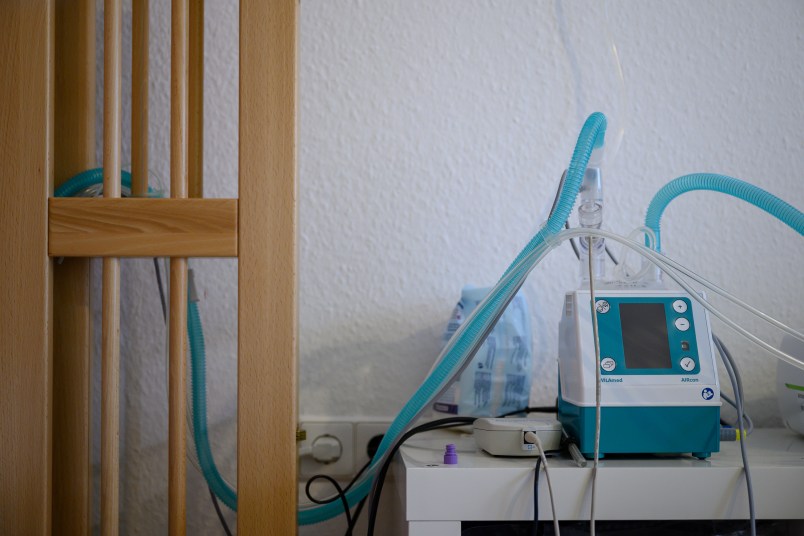A top disaster preparedness expert rang the alarm Friday that the federal government and local health authorities are not prepared to deal with a spike in COVID-19 cases as the pandemic spreads throughout the United States.
“It’s stunning” and “nonsense” to assert that the U.S. has a sufficient stockpile of ventilators to care for the potential spike in novel coronavirus infections in months to come, said Dr. Irwin Redlener, the director of Columbia University’s National Center for Disaster Preparedness.
On CNN, Redlener was responding to an interview on the network earlier Friday with Seema Verma, the administrator of the Centers for Medicare and Medicaid Services.
Pressed multiple times on the United States’ ventilator capacity, Verma ultimately said that the government had received “a couple requests for ventilators” from hospitals but asserted “we have ventilators in our stockpile.”
Verma also repeatedly stressed the importance of mitigation measures to ease the stress on hospitals.
“The stockpile is there and we hope that it is adequate,” Verma told CNN. “But I think it is important to know that’s why we’re focusing so much on the prevention of this and trying to mitigate the spread. So we don’t create a situation where our whole healthcare system is unduly stressed.”
But Redlener warned that the demand from COVID-19 could overwhelm the current capacity of the U.S. health care system.
“We are so incredibly under-prepared for a major onslaught to the hospitals, which is basically now inevitable,” he said.
Redlener said he believed the United States was in “worse shape” than Italy, where some hospitals are currently overwhelmed due to COVID-19.
“We don’t have enough hospital beds,” he said. “We don’t have enough ICU beds. And by the way, even if we had the 100,000-plus ventilators that we actually need, we don’t have the staff to operate them.”
Redlener suggested that the Department of Health and Human Services, as well as the Department of Defense, could help with capacity issues.
He also pointed to the stress the disease may place on local hospital systems.
“The models are showing enormous impact on the health care system,” he said, adding: “So, I think there’s been a lot of avoidance of what has to be done now, and we can’t have that anymore. We have to have people knuckle down and really figure out what the steps are going to be.”







But…but…what about the hoax???
From this point, Cartter said, people with flu-like symptoms, certainly in the southwestern part of the state, should assume they may have COVID-19 and act accordingly.
There’s no reason to worry. We’re operating under the bold and decisive leadership of President Trump. Every angle has been examined and every alternative has been considered!
Preparedness? We don’t need no stinkin’ preparedness.